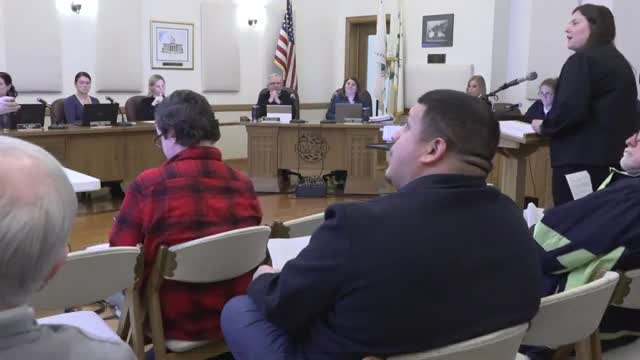Riverside staff propose narrower certificate-of-compliance review; board asks for clearer rules and outreach
Get AI-powered insights, summaries, and transcripts
Subscribe
Summary
Village planning staff proposed narrowing Riverside’s certificate-of-compliance review to notify buyers only of key, actionable items and to limit interior inspections to suspected safety or illegal-dwelling issues.
Village planning staff recommended Feb. 20 that Riverside narrow and simplify its certificate-of-compliance process for property transfers, focusing the review on buyer-critical items (flood zone, lead service line, building and impervious coverage limits and a short list of special property features) and reserving interior inspections for suspected safety issues or prohibited dwelling units.
Planner Anne Siren told the board the village’s transfer process requires an inspection, zoning review, closing out permits and a final water reading, and that it also lists legally nonconforming zoning features on a certificate provided to buyers and the county at recording. "Riverside's certificate of compliance process is required when a property is sold or transferred," Siren said, and she described staff recommendations intended to reduce staff time and the amount of zoning detail shown to buyers.
Why it matters: Staff said the current review is unique among comparable suburbs and consumes substantial staff time. In 2024 the village completed 49 standard certificates of compliance; staff estimated an average of 2.5 hours per transfer and reported a cumulative staff time figure for 2024. Staff argued that trimming nonactionable zoning minutiae from the certificate and publishing explanatory materials online would reduce confusion for buyers, sellers, attorneys and brokers while retaining notifications about property features that affect future owners.
Key proposals from staff included: refining the zoning review to list only “special” features buyers should know about (examples: lead service line, flood zone, landmark status); keeping building-coverage and impervious-surface calculations on the certificate so buyers planning renovations know applicable limits; limiting interior/home inspections to cases where staff suspects an immediate safety issue or an unlawful dwelling unit; and defining a short list of violations that must be resolved before a sale (for example, extensive unpermitted renovations affecting electrical/plumbing/mechanical systems, or impermissible hardscape in street yards installed after ordinance changes).
Public commentators and local real-estate professionals told the board the current process can create last-minute delays and uncertainty for sellers and buyers. Attorney Joe Dvorak, who said he regularly handles Riverside real-estate closings, told trustees the inconsistencies and timing issues around surveys and compliance letters have made transactions harder to navigate; he asked for clearer rules and suggested that if inspections are performed they should remain valid for a defined period (for example, six months). Planner Siren and other staff said code-enforcement complaints already prompt immediate action and that the recommended changes are meant to reduce routine staff time while retaining the ability to pursue safety-related enforcement immediately.
Trustees and the president reacted favorably to the direction of staff recommendations but asked for more precision and clearer public-facing language. Several trustees — including Trustee Mateo and Trustee Evans — asked staff to define examples of when interior inspections would be required (the planner suggested two circumstances: an apparent safety issue or a suspected prohibited dwelling unit) and to make the certificate language less jargony. President Pollock suggested considering a less-charged name than "certificate of compliance," and trustees asked staff to produce a more predictable list of actions that must be resolved before closing.
Next steps: The board asked staff to prepare proposed ordinance language and clearer public materials and to notify and solicit feedback from local brokers, real-estate attorneys and the Economic Development Commission as the revisions are drafted. Staff will return to the board with a refined proposal and draft ordinance language for the trustees’ consideration; no ordinance change was adopted at this meeting.
